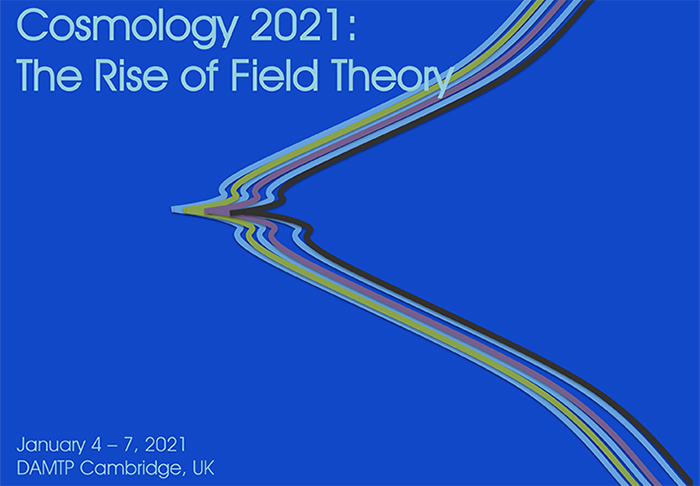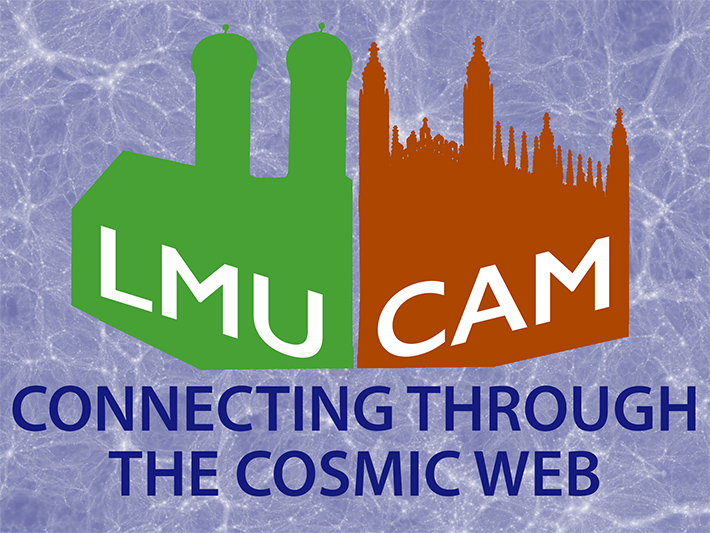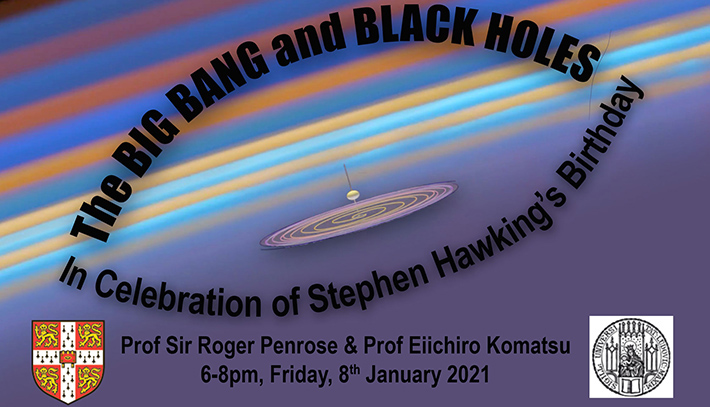Public lectures honouring Stephen Hawking and two CTC workshops in early January 2021
The Centre for Theoretical Cosmology will host two workshops plus an evening of public lectures during the week starting 4th January.
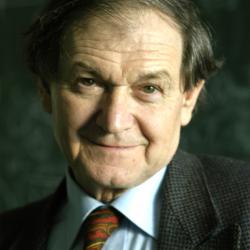
To mark what would have been Stephen Hawking's 79th birthday, two online public outreach lectures will be delivered on Friday 8th January 2021 by Professor Sir Roger Penrose, recipient of the 2020 Nobel Prize in Physics, and Professor Eiichiro Komatsu, Director of the Max-Planck Institute for Astrophysics in Munich. Sir Roger Penrose was one of Stephen Hawking’s earliest and most important collaborators, with whom he proved an all-encompassing theorem about how matter collapses to a singularity in both the Big Bang and Black Holes, that is, points in space where mass is seemingly compressed to infinite density and zero volume. Professor Komatsu played a leading role in the NASA WMAP satellite project that mapped the whole cosmic microwave sky for the first time, revealing a blueprint of the primordial seeds that Stephen Hawking had helped predict. Sir Roger and Eiichiro will take us on a journey through space and time, looking forward to new insights from future experiments.
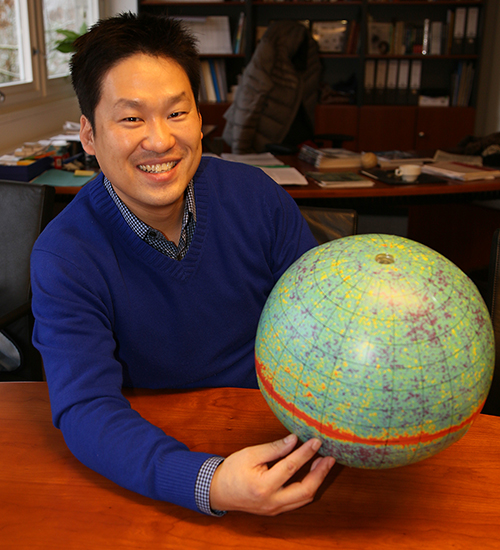
After both lectures there will be an opportunity for members of the public to ask the speakers about the really big questions live! When the event concludes, questions will continue to be answered by a panel of young experts – postdoctoral fellows and PhD students – who will remain on the livestream to respond to points left from the lecture Q & A sessions.
Prof Sir Roger Penrose: Black holes, cosmology, and spacetime singularities
Roger Penrose will describe his Nobel prize-winning work showing that Einstein’s general theory of relativity leads to the formation of black holes, something that Einstein himself did not believe happened in the real world. He will then go on to discuss his work with Stephen Hawking on broader types of singularities, also encompassing the Big Bang at the beginning of the Universe. Among other ideas, he will present his conformal cosmology proposal in which the Big Bang becomes only an apparent singularity.
Prof Eiichiro Komatsu: Where are we from? Clues from the light of the fireball Universe
The Cosmic Microwave Background (CMB) gives a photographic image of the Universe when it was still an “infant”. Its detailed measurements have given us a wealth of information such as the composition and history of the Universe. We are now using it to test our ideas about the origin of the Universe. The CMB research told us a remarkable story: the structure we see in our Universe such as galaxies, stars, planets, and eventually ourselves originated from tiny quantum fluctuations in the early Universe. But is this picture true? In this lecture Eiichiro Komatsu will review the physics of CMB and key results from recent experiments, while discussing future prospects for quest to find out about our origins.
Hawking Birthday Lecture Livestream details for 6pm Friday, 8th January 2021
The lectures will be livestreamed on Cambridge University's YouTube and Facebook pages:
https://www.youtube.com/watch?v=3sRwjf0cML0&feature=youtu.be
https://www.facebook.com/events/423191425527230/
The full live stream (including the end panel discussion) will be available from 5:30pm on the CTC's YouTube channel:
More information can be found on the event website:
http://www.ctc.cam.ac.uk/activities/hawking79/
Cosmology 2021: the Rise of Field Theory, 4th - 7th January
Cosmology is entering a new era. On the theoretical side, advances in our understanding of the allowed structures of cosmological correlators, new UV constraints on IR physics in the form of swampland and positivity constraints, and the vast constraints on dark energy models imposed by gravitational wave observations, have led to a shift in the way cosmologists approach model building. On the observational side, the coming decade will see 3D cosmological surveys vastly increase our knowledge of the interactions that were at play in the early universe, and the physics responsible for the current period of cosmic acceleration.
The aim of this workshop is to bring together cosmologists working on both early and late universe physics. Over the first three days, the workshop will be devoted to recent developments in theoretical cosmology with the days covering: late universe physics and gravity, obstructions to UV completion, and early universe cosmology and bootstrap approaches. The final day of the workshop will focus on large scale structure, covering both theoretical and observational approaches. Each day will consist of four talks from leading cosmologists and will end with a panel discussion where the days topics will be open to discussion between a chair and 3/4 panel members.
With a very exciting decade of cosmology ahead, now is a great time to review the current state of play, and look forward to new advances in our understanding of the universe.
Those who wish to take part can register for the event here: https://indico.cern.ch/event/980669/registrations/67386/
Unveiling the Structure of the Universe: Cambridge/LMU-Munich Collaboration, 7th - 8th January
From 7th to 8th January we will be hosting a joint cosmology workshop with Ludwig-Maximilians-University Munich, with whom Cambridge University enjoys a strategic partnership, bringing together cosmologists in joint online seminars and workshops. This time we focus on the field of large-scale structure cosmology, which studies the evolution of cosmic density - from the tiny seed fluctuations in the early Universe to the evolved web of structures we see today. Theorists, observers and experts in cosmological simulations from Munich, Cambridge and around the world will summarize the current state of the field and there will be plenty of time to discuss what the future holds.
Details of the event can be found here: http://www.ctc.cam.ac.uk/activities/Cambridge-LMU/
The week will end with the public lectures by Eiichiro Komatsu and Roger Penrose.

